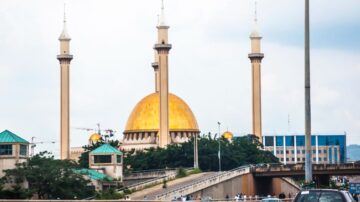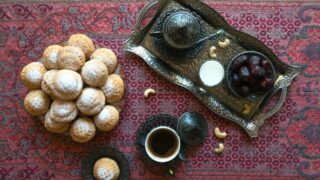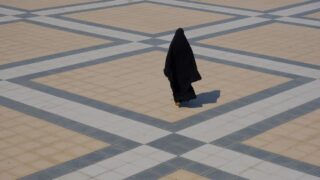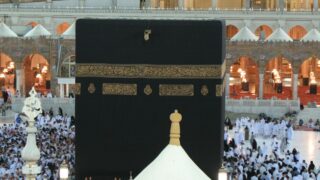“I’m leaving with whoever’s ready! Anybody else can find his or her way!” my dad bellowed as he headed for the car, dressed in his white, perfectly ironed agbada. Male cousins and uncles rush out of their rooms adjusting their traditional outfits and so do the females. Nobody wants to miss the ride to the `Eid ground.
Eid Al-Adha is a marvelous holiday in Nigeria. Days before, a great number of cars can be seen leaving the major cities and heading for the villages. It is called ‘Ile ya’ by the Yorubas while the Hausa call it ‘Sallah’ because of the prayers said on the morning of Eid.
The Eid grounds are always so full that people have to form rows for Prayer on the roads. The festivity fills the air and settles on everyone. Children look forward to their ‘aso odun’ (festival clothes) every year. Some entire families wear outfits made from the same fabric – this probably makes it easier for mothers to find their children in the crowd! The symphony of color on the grounds is simply breathtaking to behold. The imam slaughters his sacrificial lamb after the prayers and as people leave the grounds, cries of ‘Taqabballahu minni wa minkum’ (may Allah accept from all of us), ‘Eid Mubarak’ and ‘Barka Da Sallah’ (BlessedEid) can be heard reverberating.
Back home animals are sacrificed. Hausas are more likely to skin their sacrifice while Yorubas shave off the hair and cut up the meat including the skin. After that the cooking, frying and distribution of meat begins. Sometimes the meat is distributed raw, but most times it is fried. In large families and in the villages, cooking is done in the open using firewood and huge cooking pots. It is usually fun because everyone comes out to sit around the cooking pots and chat, munching on different snacks before the main meal is ready.
You will most likely be served rice if you visit during `Eid: white rice with stew, Jollof rice or fried rice. Other traditional dishes are prepared and everything is topped with some of the meat from the sacrifice. The Hausas have more interesting traditional drinks and you can be sure there will be loads of chilled kunu, zobo and ginger drinks. Soon enough, the food is ready and everyone tucks in heartily.
Most families spend the first day of Eid at home; the visits begin in the evening and continue throughout the last two days ofEid. There is a lot of exchange of goodwill, cheer and fried meat. Different Muslim organizations arrange fun outings for the whole family at different parks and recreation centers around the country. In the North, colorful Durbars are held and visits to the Emir are also common. Some families just prefer to stay home and enjoy the festivities together.
In sha’ Allah, this year’s Eid will be my first with my husband and my two step-sons. I plan to make it as exciting as I can and to enjoy it even more. I want the boys to know how special Eid is and to take the memories of the day with them always.
May the joy and happiness of `Eid ul-Adha always be with us.
Excerpted with kind permission from sisters-magazine.com

















